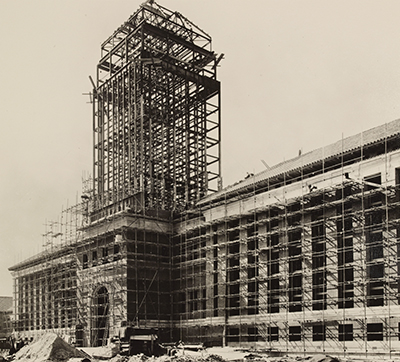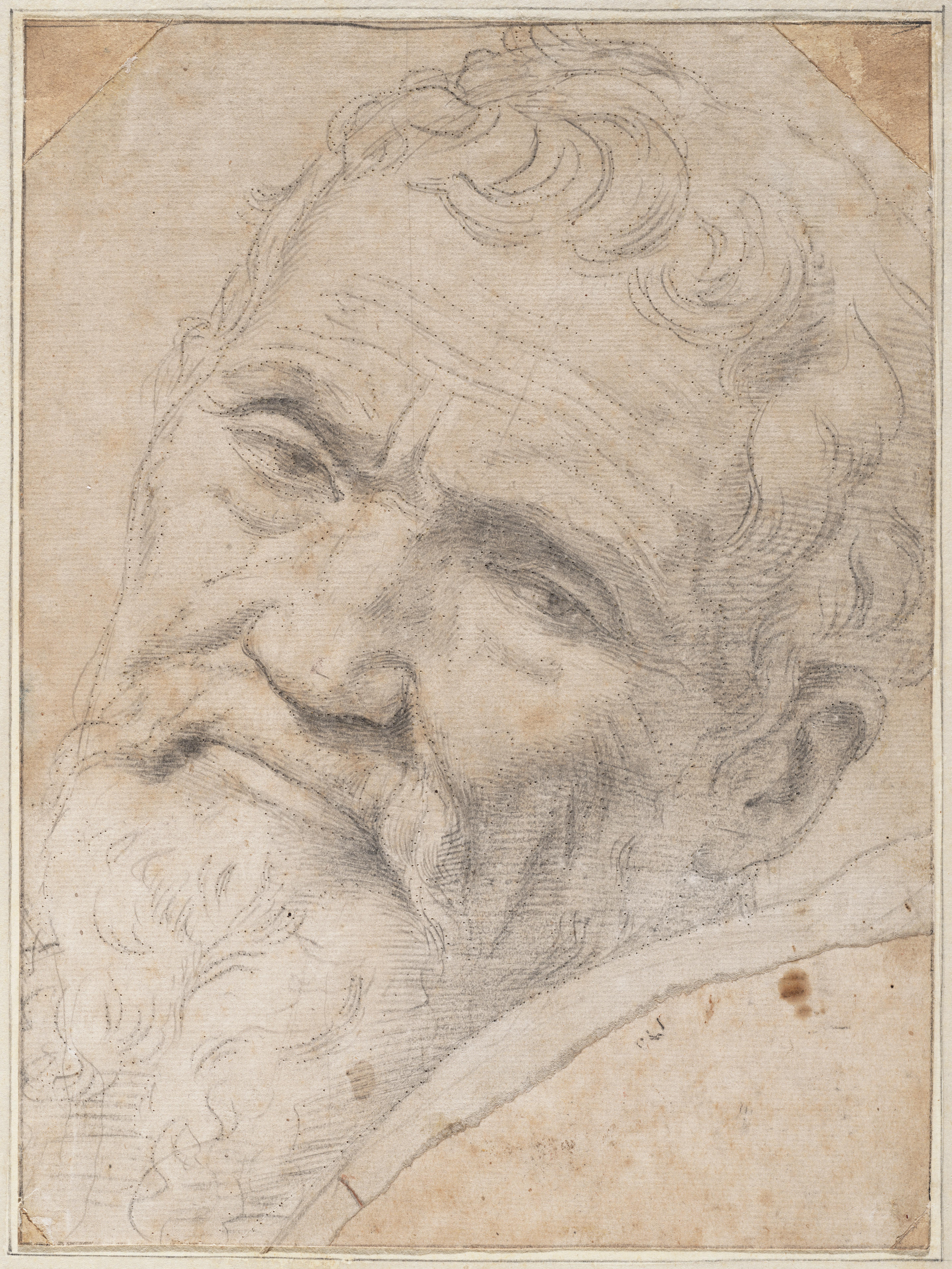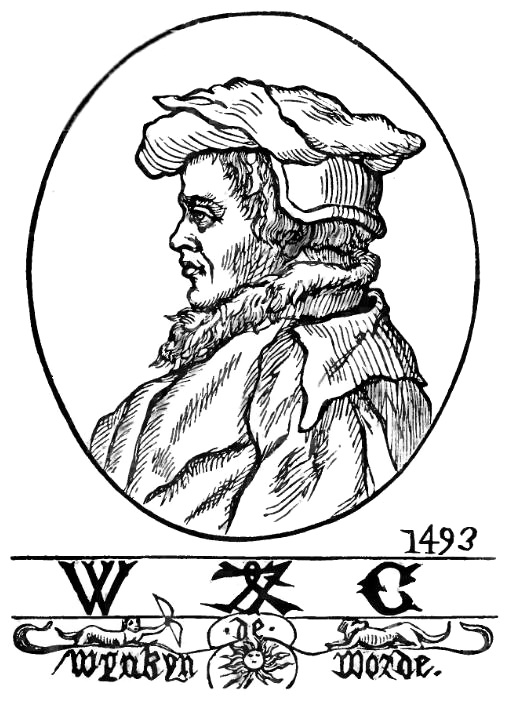|
George Ashby (poet)
George Ashby (c. 1390–1475) was an English civil servant and poet. Life He was born about 1390, and was from Warwickshire. He was clerk of the signet, first to Henry VI from the beginning of his reign, and afterwards to Margaret of Anjou, in whose service he evidently travelled abroad. Margaret named him steward of Warwick in 1446. In 1459 he was in Parliament, as member for the borough of Warwick.Griffiths p. 785. Between the summer and 28 September 1462, Ashby started a term in the Fleet Prison to which he was probably confined by the Yorkist conquerors of Henry VI, who was deposed in 1461. Prior to that, the poet would seem to have directed some part of the education of the young Edward of Westminster, Prince of Wales, Henry VI's son. He appears to have owned an estate named 'Breakspeares' in Harefield, Middlesex. Ashby died on 20 February 1475, and was buried at Harefield. His son John was also a signet clerk under Henry VI and died in 1496. A grandson George was cl ... [...More Info...] [...Related Items...] OR: [Wikipedia] [Google] [Baidu] |
Warwickshire
Warwickshire (; abbreviated Warks) is a county in the West Midlands region of England. The county town is Warwick, and the largest town is Nuneaton. The county is famous for being the birthplace of William Shakespeare at Stratford-upon-Avon and Victorian novelist George Eliot, (born Mary Ann Evans), at Nuneaton. Other significant towns include Rugby, Leamington Spa, Bedworth, Kenilworth and Atherstone. The county offers a mix of historic towns and large rural areas. It is a popular destination for international and domestic tourists to explore both medieval and more recent history. The county is divided into five districts of North Warwickshire, Nuneaton and Bedworth, Rugby, Warwick and Stratford-on-Avon. The current county boundaries were set in 1974 by the Local Government Act 1972. The historic county boundaries included Coventry, Sutton Coldfield and Solihull, as well as much of Birmingham and Tamworth. Geography Warwickshire is bordered by Leicestershire to the nort ... [...More Info...] [...Related Items...] OR: [Wikipedia] [Google] [Baidu] |
Cambridge University Library
Cambridge University Library is the main research library of the University of Cambridge. It is the largest of the over 100 libraries within the university. The Library is a major scholarly resource for the members of the University of Cambridge and external researchers. It is often referred to within the university as the UL. Thirty three faculty and departmental libraries are associated with the University Library for the purpose of central governance and administration, forming "Cambridge University Libraries". Cambridge University Library is one of the six legal deposit libraries under UK law. The Library holds approximately 9 million items (including maps and sheet music) and, through legal deposit, purchase and donation it receives around 100,000 items every year. The University Library is unique among the legal deposit libraries in keeping a large proportion of its material on open access and in allowing some categories of reader to borrow from its collections. Its or ... [...More Info...] [...Related Items...] OR: [Wikipedia] [Google] [Baidu] |
1475 Deaths
Year 1475 ( MCDLXXV) was a common year starting on Sunday (link will display the full calendar) of the Julian calendar. Events January–December * January 10 – Battle of Vaslui (Moldavian–Ottoman Wars): Stephen III of Moldavia defeats the Ottoman Empire, which is led at this time by Mehmed the Conqueror of Constantinople. * July 4 – Burgundian Wars: Edward IV of England lands in Calais, in support of the Duchy of Burgundy against France. * August 29 – The Treaty of Picquigny ends the brief war between France and England. * November 13 – Burgundian Wars – Battle on the Planta: Forces of the Old Swiss Confederacy are victorious against those of the Duchy of Savoy, near Sion, Switzerland. * November 14 – The original Landshut Wedding takes place, between George, Duke of Bavaria, and Hedwig Jagiellon. * December – The Principality of Theodoro falls to the Ottoman Empire, arguably taking with it the final remnant of the successor t ... [...More Info...] [...Related Items...] OR: [Wikipedia] [Google] [Baidu] |
1390s Births
139 may refer to: * 139 (number), an integer * AD 139 Year 139 ( CXXXIX) was a common year starting on Wednesday (link will display the full calendar) of the Julian calendar. At the time, in Western civilization, it was known as the Year of the Consulship of Hadrianus and Praesens (or, less frequ ..., a year of the Julian calendar * 139 BC, a year of the pre-Julian Roman calendar * 139 (New Jersey bus) See also * 139th (other) {{numberdis ... [...More Info...] [...Related Items...] OR: [Wikipedia] [Google] [Baidu] |
Wynkyn De Worde
Wynkyn de Worde (died 1534) was a printer and publisher in London known for his work with William Caxton, and is recognised as the first to popularise the products of the printing press in England. Name Wynkyn de Worde was a German immigrant to England. His name is given in the forms ''Wynkyn de Worde'', ''Wynken de Worde'', ''Wynkyn de Word'', ''Wijnkijn de Worde'', and ''Winandus van Worden'' ("Wynkyn" is a diminutive of "Wynand"). It is also given 15 times in the sacrist's roll of Westminster Abbey and in city records as variants of "John Wynkyn", including ''John Wynkyn'', ''Johannes Wynkyn'', ''Jan Wynkyn'', and ''Jan van Wynkyn''. He is also recorded as ''Willelmo Wynkyn'' ("William Wynkyn") once and as ''Mr. Wylkyns'' eight times. His son Richard is recorded as ''Richard Wynkyn'' and ''Rycharde de Worde''. Some authors have therefore concluded that his real name was John Wynkyn (or Wynand) and that "de Worde" was "merely a place name," while others have concluded tha ... [...More Info...] [...Related Items...] OR: [Wikipedia] [Google] [Baidu] |
Andrew Chertsey
Andrew Chertsey (fl. 1508–1532) was an English translator, now known for the devotional collection ''The craft to lyve well and to dye''. Works He undertook several translations into English of French devotional books for Wynkyn de Worde Wynkyn de Worde (died 1534) was a printer and publisher in London known for his work with William Caxton, and is recognised as the first to popularise the products of the printing press in England. Name Wynkyn de Worde was a German immigra .... The following are attributed to him: *''A Lytell treatyse called the Lucydarye'', Wynkyn de Worde, London, 1508?, from a French version of the ''Elucidarius'' of Honorius Augustodunensis. *''Ihesus. The Floure of the Commaundementes of God, with many examples and auctorytees extracte and draw as well of Holy Scryptures as other doctours and good auncyente faders, the whiche is moche utyle and profytable unto all people'', Wynkyn de Worde, London, 1521. *''A Goostly Treatyse of the Passyon of Ch ... [...More Info...] [...Related Items...] OR: [Wikipedia] [Google] [Baidu] |
Robert Copland
Robert Copland ( fl. 1508–1547), English printer and author, is said to have been a servant of William Caxton, and certainly worked for Wynkyn de Worde. The first book to which his name is affixed as a printer is ''The Boke of Justices of Peace'' (1515), at the sign of the Rose Garland, in Fleet Street, London. Anthony à Wood supposed, on the ground that he was more educated than was usual in his trade, that he had been a poor scholar of Oxford. His best known works are ''The hye way to the Spytell hous'', a dialogue in verse between Copland and the porter of St Bartholomew's hospital, containing much information about the vagabonds who found their way there, including thieves' cant; and ''Jyl of Breyntford's Testament'', dismissed in '' Athenae Oxonienses'' (ed. Bliss) as a poem devoid of wit or decency, and totally unworthy of further notice. He translated from the French the romances of ''Kynge Appolyne of Thyre'' (W. de Worde, 1510), '' The History of Helyas Knyght of the S ... [...More Info...] [...Related Items...] OR: [Wikipedia] [Google] [Baidu] |
Thomas Warton
Thomas Warton (9 January 172821 May 1790) was an English literary historian, critic, and poet. He was appointed Poet Laureate in 1785, following the death of William Whitehead. He is sometimes called ''Thomas Warton the younger'' to distinguish him from his father who had the same name. His most famous poem is ''The Pleasures of Melancholy'', a representative work of the Graveyard poets. Life Warton was born in Basingstoke, Hampshire, the son of poet Thomas Warton, the Elder, and younger brother of Joseph Warton and Jane Warton. As a youngster, Warton demonstrated a strong predilection toward writing poetry, a skill he would continue to develop all of his life.Life of Thomas Warton, the Younger In fact, Warton translated one of |
Bishop Of Ely
The Bishop of Ely is the ordinary of the Church of England Diocese of Ely in the Province of Canterbury. The diocese roughly covers the county of Cambridgeshire (with the exception of the Soke of Peterborough), together with a section of north-west Norfolk and has its episcopal see in the City of Ely, Isle of Ely in Cambridgeshire, where the seat is located at the Cathedral Church of the Holy Trinity. The current bishop is Stephen Conway, who signs ''+Stephen Elien:'' (abbreviation of the Latin adjective ''Eliensis'', meaning "of Ely"). The diocesan bishops resided at the Bishop's Palace, Ely until 1941; they now reside in Bishop's House, the former cathedral deanery. Conway became Bishop of Ely in 2010, translated from the Diocese of Salisbury where he was Bishop suffragan of Ramsbury. The roots of the Diocese of Ely are ancient and the area of Ely was part of the patrimony of Saint Etheldreda. Prior to the elevation of Ely Cathedral as the seat of the diocese, it existe ... [...More Info...] [...Related Items...] OR: [Wikipedia] [Google] [Baidu] |
Henry VI Of England
Henry VI (6 December 1421 – 21 May 1471) was King of England and Lord of Ireland from 1422 to 1461 and again from 1470 to 1471, and disputed King of France from 1422 to 1453. The only child of Henry V, he succeeded to the English throne at the age of nine months upon his father's death, and succeeded to the French throne on the death of his maternal grandfather, Charles VI, shortly afterwards. Henry inherited the long-running Hundred Years' War (1337–1453), in which his uncle Charles VII contested his claim to the French throne. He is the only English monarch to have been also crowned King of France, in 1431. His early reign, when several people were ruling for him, saw the pinnacle of English power in France, but subsequent military, diplomatic, and economic problems had seriously endangered the English cause by the time Henry was declared fit to rule in 1437. He found his realm in a difficult position, faced with setbacks in France and divisions among the nobil ... [...More Info...] [...Related Items...] OR: [Wikipedia] [Google] [Baidu] |
John Moore (Bishop Of Ely)
John Moore (1646–1714) was Bishop of Norwich (1691–1707) and Bishop of Ely (1707–1714) and was a famous bibliophile whose vast collection of books forms the surviving "Royal Library" within Cambridge University Library. Origins Bishop John Moore was descended from the ancient family of De La Moor (later Moore), of Moore Hayes in the parish of Cullompton in Devonshire, England. He was born in Market Harborough in Leicestershire, the son of Thomas Moore (1621–1686), an ironmonger of Market Harborough, by his wife Elizabeth Wright, daughter of Edward Wright of Sutton in the parish of Broughton, Leicestershire. The Bishop's paternal grandfather was Rev. John Moore (c.1595–1657) a clergyman of Puritan views and an author of pamphlets against enclosures, who was a younger son of Sir John Moore of Moor Hayes, knighted at the Palace of Westminster by King Edward VI in 1549, by his wife Katherine Pomeroy, a daughter of Sir Thomas Pomeroy (1503-1566), feudal baron of Berry Pome ... [...More Info...] [...Related Items...] OR: [Wikipedia] [Google] [Baidu] |
Trinity College, Cambridge
Trinity College is a constituent college of the University of Cambridge. Founded in 1546 by Henry VIII, King Henry VIII, Trinity is one of the largest Cambridge colleges, with the largest financial endowment of any college at either Cambridge or University of Oxford, Oxford. Trinity has some of the most distinctive architecture in Cambridge with its Trinity Great Court, Great Court said to be the largest enclosed courtyard in Europe. Academically, Trinity performs exceptionally as measured by the Tompkins Table (the annual unofficial league table of Cambridge colleges), coming top from 2011 to 2017. Trinity was the top-performing college for the 2020-21 undergraduate exams, obtaining the highest percentage of good honours. Members of Trinity have been awarded 34 Nobel Prizes out of the 121 received by members of Cambridge University (the highest of any college at either Oxford or Cambridge). Members of the college have received four Fields Medals, one Turing Award and one Abel ... [...More Info...] [...Related Items...] OR: [Wikipedia] [Google] [Baidu] |






